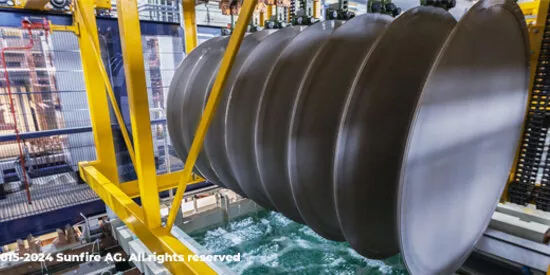
Balancing development needs with sustainability goals: Clifford Capital
Pragmatism is an essential consideration to promoting sustainable finance in Asia, where the region’s cultural diversity is matched only by its economic disparity, according to Audra Low, Head of Origination and Structuring at Clifford Capital.
“I think the biggest challenge in Asia has been in its ability to advance sustainability objectives in the same manner and pace as in developed markets like Europe,” Low said, speaking on the sidelines of Societe Generale’s inaugural Asian Sustainable & Positive Impact Conference in Singapore on 5 July 2018.
This tightrope act is most obvious in the energy sector, which is characterised by an uneven supply of electricity across markets even as demand is expected to nearly double across Asia Pacific by 2030.[1] For many in this region, the availability of energy remains a pressing issue. In a region that is home to economic powerhouses like China and India, over 700 million people have no access to electricity. And nearly 2 billion people burn wood and bio waste for their energy needs[2] – presenting a significant hurdle to achieving the United Nations Sustainable Development Goal of affordable and clean energy for all.[3]
A middle path
Though several Asian countries continue to rely on coal as a ready source of energy, Low noted, there is a growing trend among financial institutions to withhold funds from such projects.
“For us here in Asia that’s a bit of a dilemma,” Low observed. “How do you finance projects in a responsible way that discourages people from using coal while making sure that the people who need power can get what they want?”
Clifford Capital, which has a mandate from the Singapore Government to provide structured finance solutions in support of Singapore-based companies looking to invest or export to markets overseas, takes a highly selective and scrupulous approach towards the financing of coal-related projects.
“We consider things like whether or not there are viable alternatives to coal, whether the most efficient technologies are being utilized, and whether a project will serve key developmental needs…we have been and will continue to be highly selective in whether or not we finance coal-based projects. And I think that’s a step in the right direction,” Low said.
Societe Generale, a founding member of the United Nations Environment Programme Finance Initiative, shares this pragmatic approach to sustainable finance, Pierre Palmieri, the bank’s Head of Global Finance & Head of Sustainable and Positive Impact Finance, noted in his welcome address at the event in Singapore. That enables the bank to partner with organisations like Clifford Capital to achieve broader sustainability goals.
Pulling together
“Societe Generale is one of the most active project finance banks globally and in Asia, and we find the bank’s work in sustainability financing quite instructive,” Low said.
While it’s important to acknowledge and emulate the many admirable examples of sustainable financing solutions put forth by the private sector, the role of the government is crucial and cannot be ignored, especially in Asia. This point was highlighted at the event and echoed by Low, who noted that supportive governments and sensible policymaking are necessary to attract issuers and investors.
“As a lender that does a lot of greenfield work, I’d say that everybody has a part to play in promoting green projects and green financing, and ultimately make sustainable projects a reality,” Low said.
[1]www.adb.org/sectors/energy/issues




